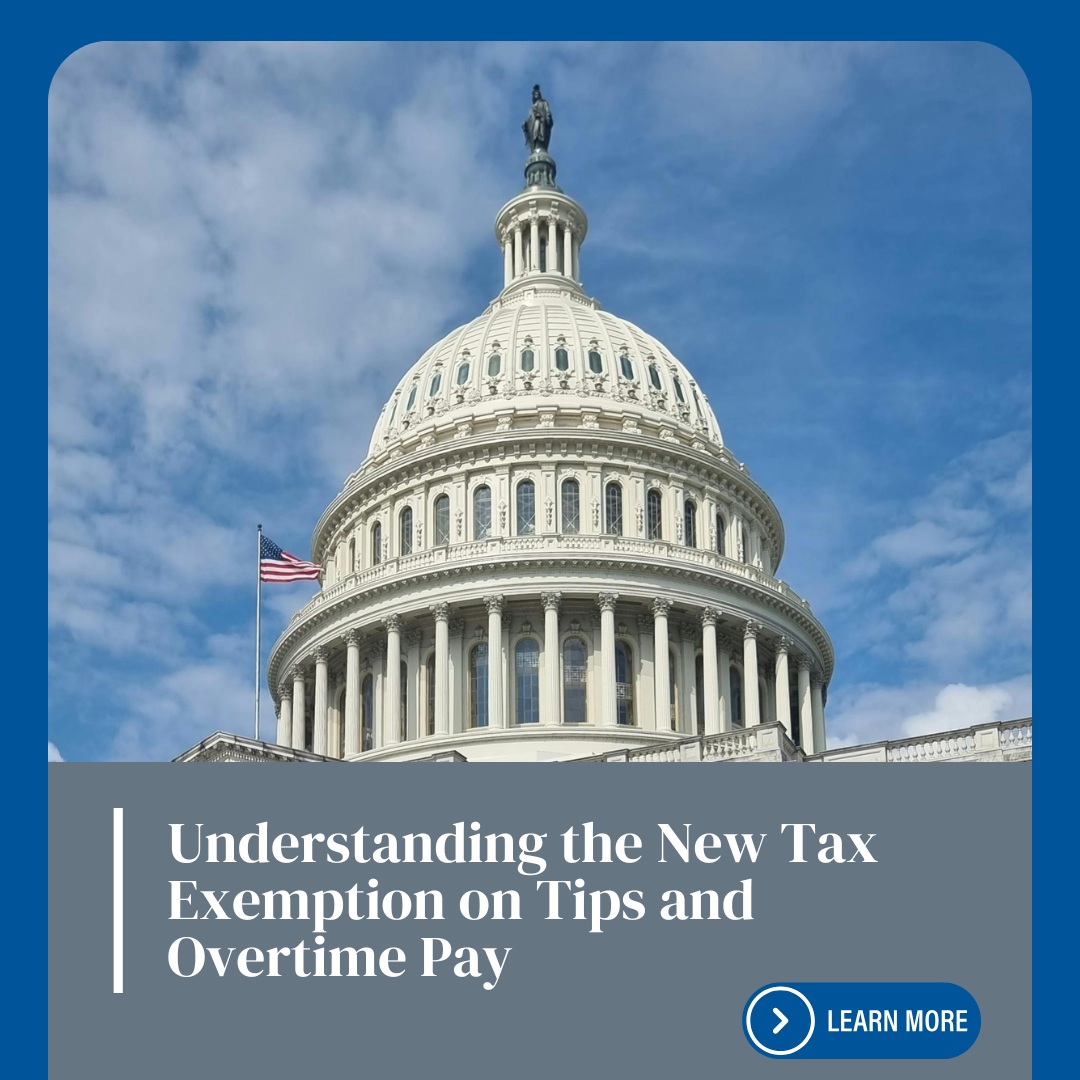The recently passed One Big Beautiful Bill Act (H.R. 1) has sparked plenty of questions from employees and employers alike. Two highly publicized provisions, the “no tax on tips” and “no tax on overtime”, have led some to believe taxes will stop being withheld from paychecks right away.
We want to set the record straight and help you understand what these changes mean for your business and your employees.
What’s Changing, and What Isn’t
Starting with the 2025 tax year and lasting through 2028, employees will be able to deduct certain tip and overtime income on their individual tax returns when they complete Form 1040, U.S. Individual Income Tax Return.
This does not mean employers will stop withholding taxes on tips or overtime wages during payroll. Payroll will continue to withhold federal income tax from employees’ overtime pay. Employees will also still owe Social Security tax, Medicare tax, and any applicable state and local taxes on their overtime compensation.
Deduction Limits for Employees
Here’s what employees can expect:
- Tips: Up to $25,000 annually (phase-outs apply for higher-income earners).
- Overtime: Up to $12,500 annually, or $25,000 for joint filers (also with income phase-outs).
These deductions only apply to:
- Cash tips from occupations that regularly received tips on or before December 31, 2024.
- FLSA-required overtime (not state-mandated or contract-based overtime). Under the Fair Labor Standards Act (FLSA), employees must be paid one-and-a-half times their regular rate of pay for hours worked more than 40 in a workweek.
UniqueHR’s Part in the Process
To help employees claim these deductions, employers must report:
- The total amount of qualified tips. This includes only cash tips, whether paid directly, charged to a card, or received through tip-sharing, that have been reported to employers for payroll tax purposes.
- The total amount of qualified overtime compensation. This applies only to the premium portion of overtime pay (the amount over the employee’s regular rate), the deduction applies solely to the 0.5x premium portion.
- Both must appear as separate line items on employee Form W-2s each year (the legislation doesn’t specify which box employers will use yet, but we expect further guidance from the IRS in the coming months.)
At UniqueHR, we’ll take care of tracking and reporting this information accurately, ensuring your employees receive the proper documentation at tax time.
We understand new federal requirements can feel overwhelming, but you won’t have to navigate them alone. Our team will manage the reporting requirements through your payroll services.
About the One Big Beautiful Bill Act
Signed into law in July 2025, H.R. 1 delivers key campaign promises and introduces several tax changes. The “no tax on tips” and “no tax on overtime” provisions are designed to benefit service industry workers and employees who regularly work overtime, but they also create new reporting requirements for businesses.
Final Thoughts
Although these changes don’t require employers to adjust payroll processes at this time, employees may have questions as the 2025 tax year approaches. Some may even consider updating their W-4 allowances to reflect the potential deductions
At UniqueHR, we strive to stay ahead of regulatory updates and will continue to guide our clients through these changes. If you have questions about how these provisions may affect your business, give us a call at 800.824.8367 to schedule a free consultation and learn how we can support your business.


